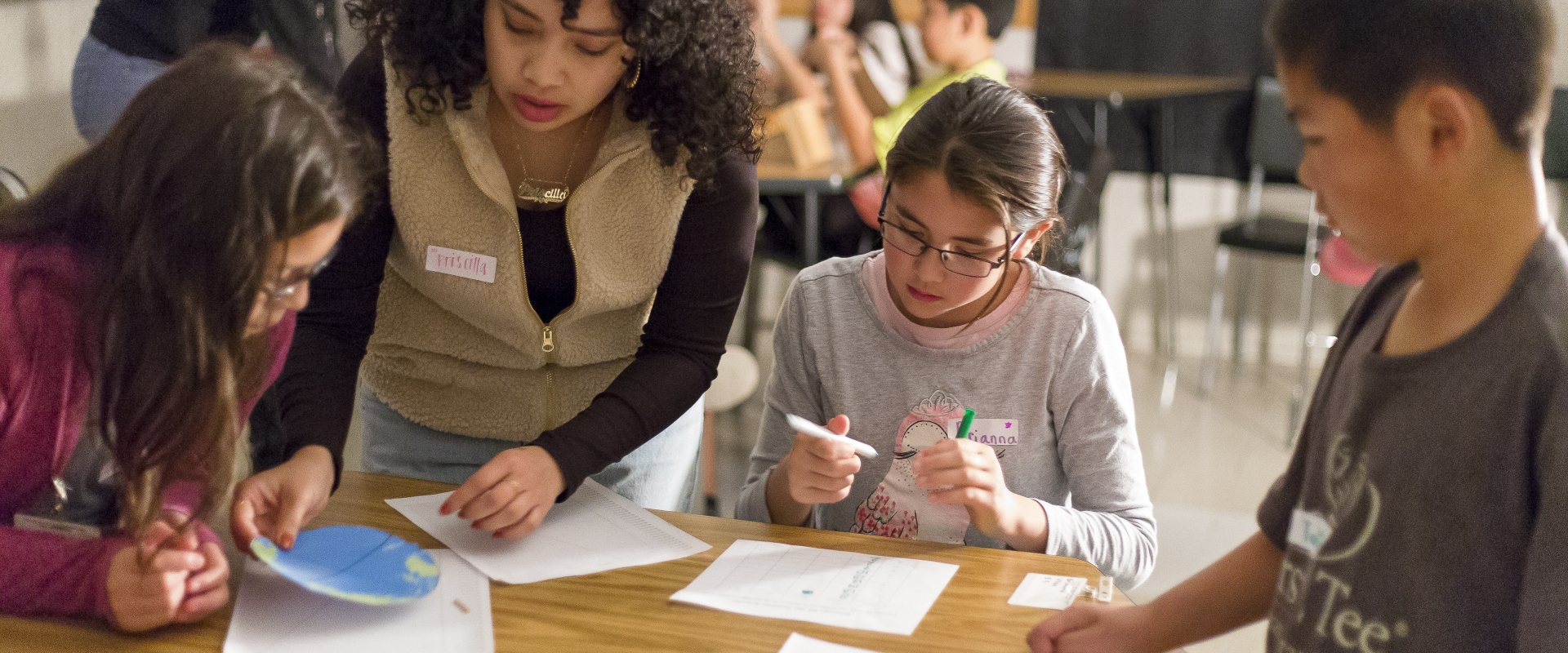GCoE faculty prepare a service learning comeback
April 5, 2022
Service-learning was put on hold during the covid-19 pandemic. Now Jetta Jacobson and Elana Naftalin-Kelman, lecturers in the Graduate College of Education, are ready to launch back into it. Their service-learning work, though still in the planning stages, holds great promise.
In past semesters, Jacobson & Naftalin-Kelman have worked together on the service-learning component of Special Education 330: Introduction to Disability (SPED 330). During the course, students would engage in 20 hours of direct service with people with disabilities. The importance of this direct service cannot be understated. Those opportunities helped students to “humanize” the concepts which they learned in the course, says Naftalin-Kelman: “Until you meet someone with a disability, you cannot really understand living with a disability.” Having to put that on hold last year, then, removed a key component of SPED 330.
Now planning to bring back the service-learning component, Jacobson says that both professors see it “as an opportunity to revamp… to take a look at what we are doing with the program, and what to do differently.” Among the top priorities is to put reciprocal relationships at the core of service. It is key to have “authenticity and relevancy for the student and the organization,” says Jacobson: service activities must simultaneously address student learning objectives and the objectives of the organization.
This authenticity and relevancy include other types of relationships, as well. When students develop relationships with the persons they work with, say Jacobson and Naftalin-Kelman, it adds authenticity and highlights the social-emotional aspects which are key to education. Additionally, these professors hope to foster connections between students working within the same organization, or in separate organizations, through recurring reflection activities. This will give students practice to “engage with material” and share perspectives, says Naftalin-Kelman.
The dimensions of service-learning being planned for by these professors are insightful and practical: connection to course material; the importance of reciprocal relationships; fostering of authenticity and reflection. Through those dimensions, Jacobson and Naftalin-Kelman hope to make it an “intentional” project, with the course “as a bridge between theory and practice.”
With these professors at the helm, it will be exciting to see what happens next.
Inclusion Pilot Project: GCoE faculty guide values into action
March 24, 2022
What can “inclusion” and “equity” look like in higher education? Take a look at the Inclusion Pilot Project. Under the guidance of Mayumi Hagiwara, Assistant Professor of Special Education, and Sadie Egan, Lecturer of Special Education, IPP presents exciting possibilities.
A collaboration between the Graduate College of Education and the Center for Extended Learning, IPP supports individuals with intellectual and developmental disabilities who would like to participate in the academic and social aspects of campus life. Participants work with GCoE and CEL to create coursework, vocation, and social goals which they would like to achieve as non-matriculated students at SF State. IPP students are then paired with SF State undergraduates who serve as their peer mentors and receive a certificate of completion upon accomplishing their individualized goals.
Only in its third semester of implementation, IPP is already showing great promise for its participants and for SF State. Though IPP students have been of diverse backgrounds, Hagiwara says they just want to be included without being seen as “different” from others. The inclusive environment at SF State has been integral to helping that happen. Hagiwara notes that there has been “no pushback” whatsoever from faculty, who see IPP as a social justice initiative aligned with their professional and personal values. Additionally, undergraduate students have exceeded expectations as “authentic peer mentors,” says Egan. Their capacity to listen to, relate with, and mentor IPP participants as fellow students have been a great surprise to the project.
It is important to note that IPP is not a ‘one-way street’. Rather, Egan points out that it has given everyone involved a chance to expand their perspectives. For instance, as IPP participants learn new concepts and skills, faculty have gotten the chance to reexamine how they deliver lectures. Rather than text-heavy slides, faculty have found that including more visual elements has helped everyone to participate in the conversation and still achieve learning outcomes.
Through interactions such as those, Hagiwara hopes that IPP can “change the dynamic of conversations regarding equity and inclusion.” Rather than focusing on individual differences, the project brings IPP students, SF State undergraduates, and faculty together in learning processes that put commonality and shared understanding at the center. Thanks to SF State’s inclusive environment, Egan says, “We are just letting it happen.” Even so, these GCoE faculty deserve much credit for making it happen.
